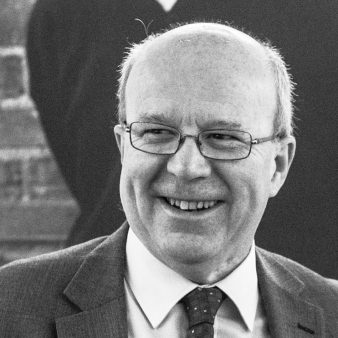The findings of the Equality and Human Rights Commission in 2021 that the Labour Party was guilty of antisemitism was seismic. The idea that a party committed to anti-racism for decades could have racists in its midst was deeply damaging. There had to be a robust response. Banning Jeremy Corbyn, the former leader, from standing as a Labour candidate at the next election was the clearest example that Sir Keir Starmer meant business.
Former Liverpool MPs Luciana Berger and Louise Ellman have returned to the party, and nobody doubts Labour’s stand on antisemitism.
The question facing us now is whether the purge, like some purges in the past, is going too far.
The Labour mayor for North of the Tyne, Jamie Driscoll has been told he cannot seek to be the candidate for the new North East mayoral post. His offence is attending an arts meeting with the film director Ken Loach. Loach has himself been expelled from the Labour Party in the row over antisemitism.
Significantly, the mayors of Greater Manchester and the Liverpool City Region have written to Labour’s National Executive expressing their dismay that a sitting mayor should be banned from standing with no right of appeal. Andy Burnham and Steve Rotheram say Driscoll deserves more respect. These mayors did not have to get involved in this row. It possibly risks a split opening up with an incoming Labour government who will have an influential say on more powers and funds for these conurbations. Burnham’s relations with Starmer were already deteriorating, with the Greater Manchester mayor suggesting his ideas were being briefed against by London spin doctors.
Despite these risks, these two prominent figures on the North West political scene clearly feel the Corbynite purge has gone far enough. They may be right because, presumably the move against Corbyn’s allies is designed to present Labour as a united moderate party at next year’s General Election.
Now it seems anything but, with a fight back by many Labour members in the North East who feel “London” Labour is preventing their man at least being allowed on to a long list with other candidates for the Labour nomination.
Loach is a controversial figure. Many feel his strong criticism of some of the actions of the state of Israel cross the line into antisemitism. Loach denies this and it must be the case that criticism of Israel and support for the Palestinians cannot, of itself amount to antisemitism.
Although the party hasn’t officially linked Driscoll’s barring to the Loach meeting, a senior source has said that was the reason. In which case we seem to have reached a position that Labour Party members sharing a platform, or even perhaps attending a non-political meeting, with someone who’s views offend the National Executive, are in danger of damaging their prospects within the party.














